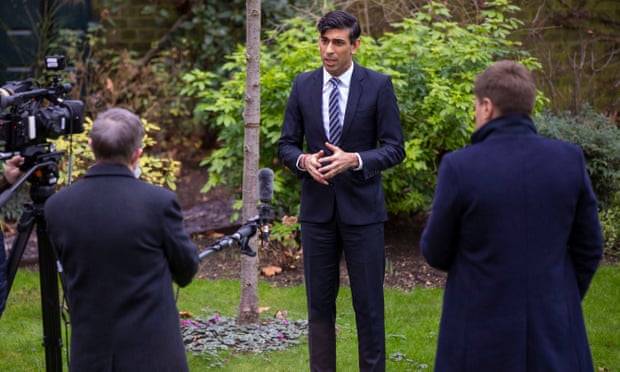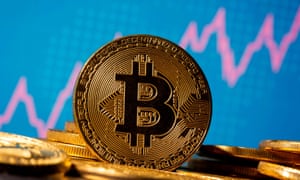Thanks for the latest £4.6bn support package, chancellor, but when will you be serving the main course? That was the gist of the business world’s response to Rishi Sunak’s announcement of grants for the retail, hospitality and leisure sectors. One could call the reply churlish, but companies’ demand for clarity – and soon – is entirely fair.
Decisions on jobs and investment for the spring are being made now. If Sunak intends to extend the business rates holiday beyond March, or the furlough scheme beyond April, he needs to hurry up and make the announcement.
Rishi Sunak unveils £4.6bn relief package for UK retail and hospitality sectors
The chancellor did not definitively say the Treasury intends to say nothing until 3 March, but that was his strong hint. “We’ll have a budget in early March to take stock of our wider support and set out the next stage in our economic response,” he said.
One can understand – up to a point – the Treasury’s desire to keep its options open. The length of the latest lockdown is unknown and the vaccination programme is in its infancy. The UK will borrow £400bn this financial year, so it will feel pressing to ensure all support for business is actually needed. The Treasury does not want to accumulate “dead weight” costs.
Yet delay carries a price. The modest grants offered in Tuesday’s measures are unlikely to change calculations for many small pubs, restaurants or events companies. Faced with a new lockdown, they will be asking whether it is worth trying to hang on until the spring if rates relief and furlough support could disappear in March and April.
At the start of the pandemic, Sunak won praise for acting swiftly: the economic plan was aligned with the healthcare response. One can not say the same about subsequent Treasury decisions, most of which have gone down to the wire. The effect is to create additional financial uncertainties for business, on top of the obvious trading uncertainties created by the pandemic.
Adam Marshall, director general of the British Chambers of Commerce, put it well: “The government must move away from this drip-feed approach and set out a long-term plan that allows all businesses of all shapes and sizes to plan, and ultimately survive.” A budget in two months’ time is too long to wait.
Next up: a V-shaped recovery
Still, at the top end of the business world, there are striking examples of what self help can achieve, with the clothing retailer Next producing two remarkable forecasts on Tuesday.
First, despite Next having wondered at the start of the pandemic whether losses could be on the cards this year, its chief executive, Simon Wolfson, now expects pre-tax profits of £342m in the 12-month trading period that closes at the end of January. Then he expects profits in the financial year to January 2022 to rebound to £670m on a “central planning scenario” – only £60m less than in the last full pre-pandemic trading year.
Next’s Christmas profits better than expected, buoyed by online sales
Sadly, it is dangerous to read too many wider lessons into Next’s experience. For starters, the company’s online operation, even in normal times, generates about half the sales; therefore, in the nine weeks before Christmas, gains through the internet compensated for almost all the sales lost in stores. As important, Next is simply better than most competitors in managing costs.
But one factor should give hope to all retailers who make it to the post-vaccination world: defaults in Next’s credit business have been low and those consumers who have kept their jobs seem inclined to spend when they have the chance. Few retail recoveries will match Next’s V-shaped profile, but most rivals would settle for V-ish.
Is bitcoin a tulip bulb fraud – or pure gold?
Here is a brave prediction by a team of analysts at JP Morgan, the Wall Street bank: a unit of bitcoin, which has already risen fourfold to more than $30,000 in the past year, could eventually hit $146,000 if investors come to view the digital currency as an alternative to gold.
Bitcoin hits record high on 12th anniversary of its creation
Any wacky forecast can seem plausible in the wild climate for bitcoin, but the bravery of this punt lies in the view of Jamie Dimon, JP Morgan’s chairman and chief executive. The boss’s analysis was famously straightforward: bitcoin is a “fraud … worse than tulip bulbs” and fit only for drug dealers, murderers and people living in North Korea, he said back in 2017.
One admires the analysts’ independence of mind. And one wishes them luck with their careers at JP Morgan if their prediction soon looks ridiculous.
Source: Read Full Article


